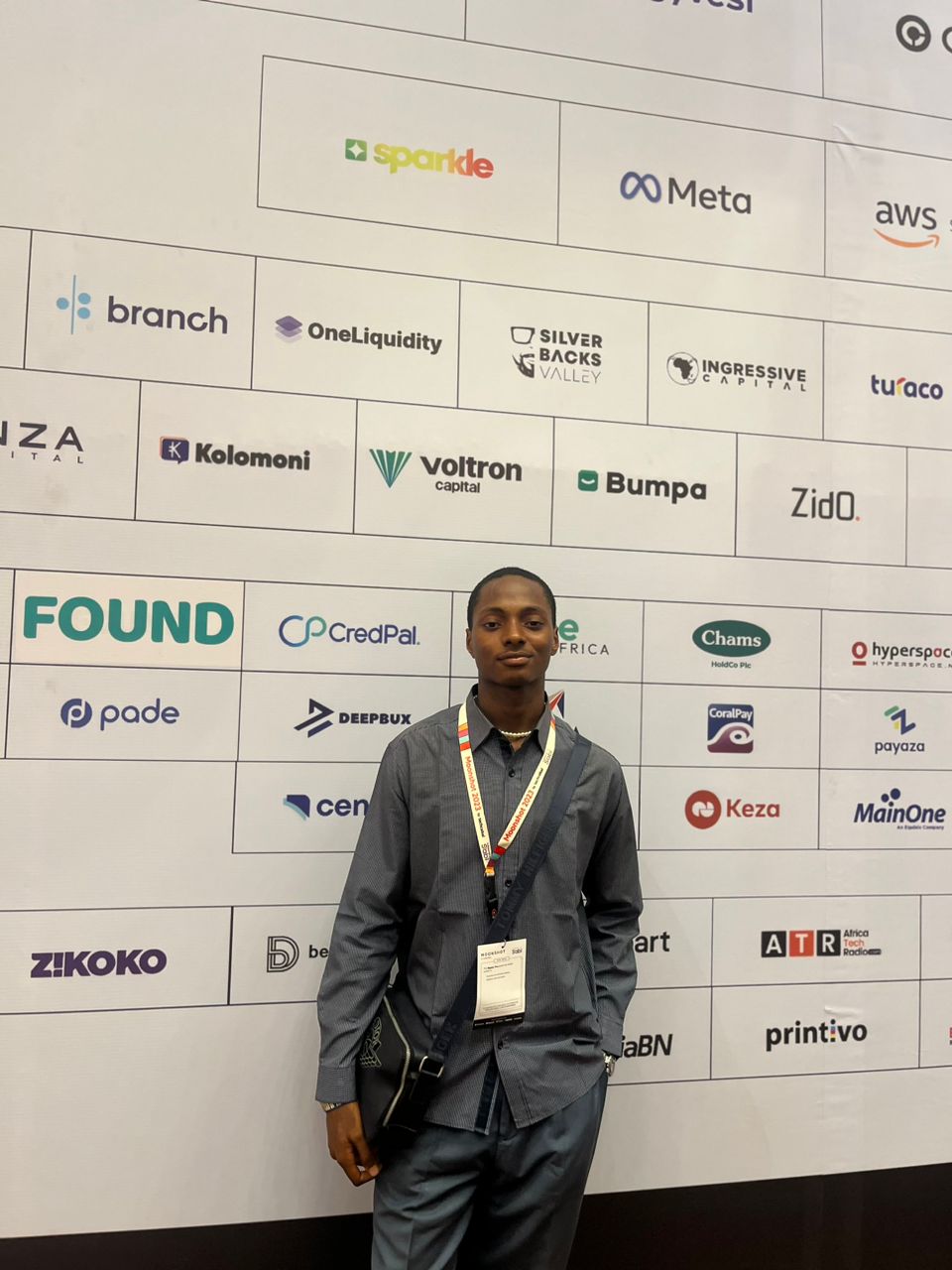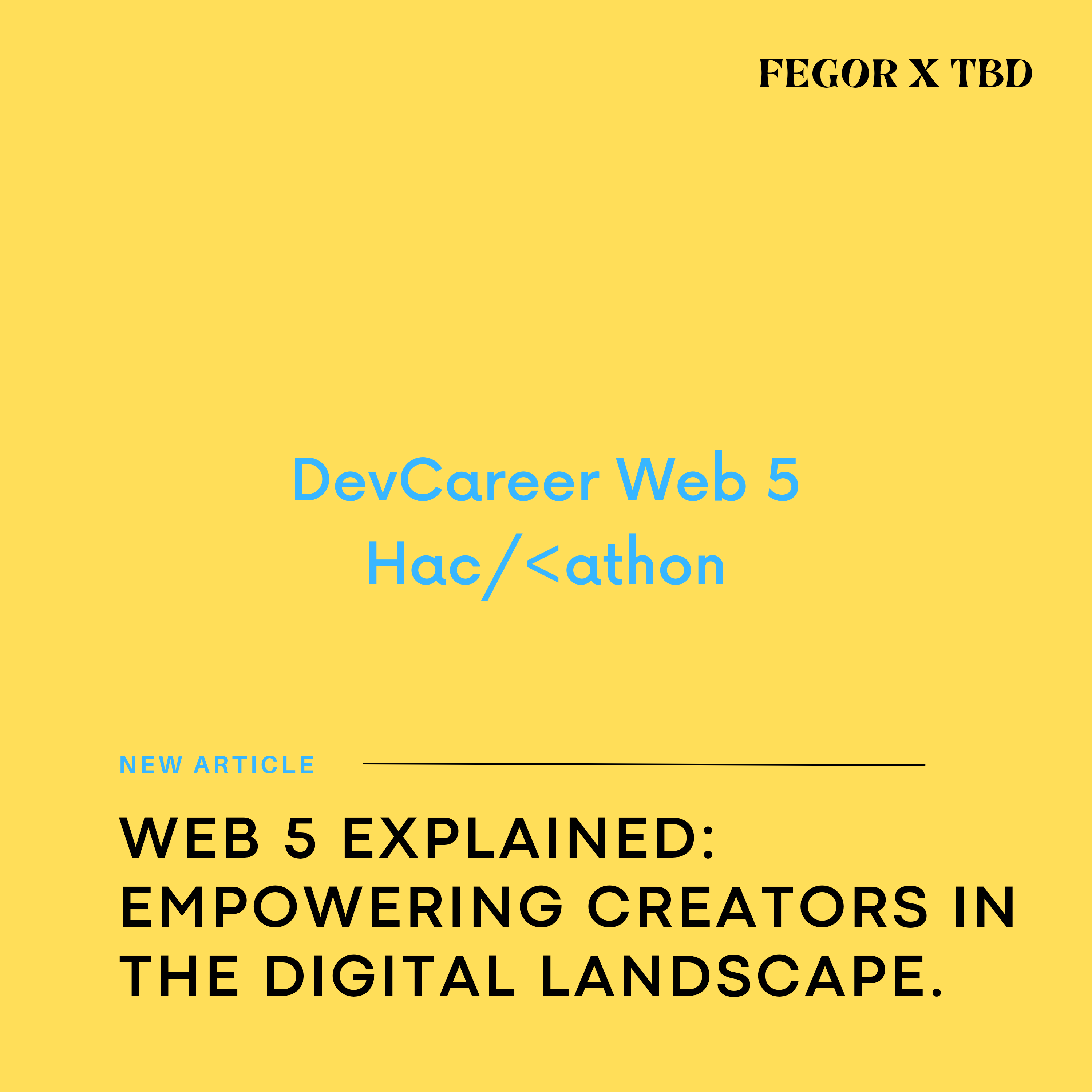Web 5 Explained: Empowering Creators in the Digital Landscape.
 Fegor Anthony
Fegor Anthony
Web 5 is arguably the future of how creatives interact with the Internet. It's quite obvious that in the web today, creators do not have complete autonomy over their data, identity, and experiences. Although the current state of the Internet gives them a certain level of autonomy, as they can self-publish content, comment on social networking platforms, and increase their content creation ability.
While publishing articles and comments on various platforms allows creators to engage the Internet and create valuable content, it doesn't guarantee autonomy over one's data and identity. Before signing up for a platform, one has to agree to some terms of service and privacy policies. Most of the time, this makes it easy for these platforms to have control over the users' data and collect information for various purposes such as analytics, advertising, or even sharing data with third parties. As a result of this, creators do not have full control over how their data is used or shared, which is what web 5 has come to change.
What Exactly is Web 5?
Web 5 offers innovative identity layer that empowers decentralized apps and protocols to revolutionize the web experience. Through the creation of web 5 platform, creators and other individuals can engage with the web in a more decentralized way, while also having privacy, a transparent digital environment, and enhanced security with their information.
Think of web 5 as your dairy in which you decide what to write and who gets access to what you've written. It's basically about having more autonomy over your own information and identity. With web 5, the journey of how you control yourself on the Internet starts before you even decide to use a website or app.
What Are Decentralized Identifiers (DIDs) and How Do They Work?
Decentralized identifiers (DIDs) is a component of blockchain that let's you control who you are on the Internet. Unlike regular identifiers like email addresses, and social media handles owned by big companies, in which they have the right to disable or delete these identifiers, in the case of DIDs it is different. It's like owning your online identity without needing the permission of those companies which makes you more independent online.
While DIDs operates on the blockchain, your personal data are not stored there. Instead, they use it as a secure anchor, holding pointers to where your private info is stored off-chain. So, your DID isn't filled with your personal data, it's basically just Blockchain holding a map to your private information, but the information itself is not kept there.
Think of DID as a special digital identity that a creator fully owns and control. These IDs are like keys to their digital presence within a web 5 platform. They can decide who can get access to their online presence, content and information, while also being in full control without depending on any central authority.
With DIDs, creators are not dependent on centralized entities authentication or approval. They can decide how their information is stored or accessed by others, ensuring greater independence and reliability in online interactions and the web as a whole.
What Are the Benefits of Web 5 for Creators?
Enhanced Trustworthiness in Data Sharing: Web 5 makes sharing data more trustworthy. It lets creators feel confident because they have access to a dependable way of sharing their information. It helps everyone trust that the data being shared is real and reliable, which I feel is important for creators who want to keep their shared info honest and trustworthy.
Independence in Data Handling: Decentralized web nodes are nodes that let you store your data separately from other applications. It gives you control in managing your data the way you want, not just the way those app will decide. With decentralized web nodes (DWNs) creators have more freedom with their own data. It's like taking your stuff out of one box and putting it in many boxes you control. This freedom lets creators manage their data the way they want, making it safer for them. It's a big deal for creators who care a lot about keeping some certain details private and easy to access. With web 5, creators also get to decide how they want to use their data, who can see it, and where it's being kept on the Internet.
Enhancing the Process of Content Creation and Engaging with Audiences: Web 5 will change how creators make content as they have a bigger say in what they create and how they share it. Using Web 5 also helps creators connect better with their fans, as they can cut through the noise and focus on those interested in what they create. This makes the connection real. It's also an opportunity for them to monetize what they do.
A Foundation for Developer Creativity: Web 5 serves as a tool for developer creativity. It offers a solid framework for creators to build new and decentralized web experiences. With this in mind, creators can create unique applications that reshape the digital landscape entirely. This will be possible because web 5 has a more straightforward approach to building web apps, freeing creators from all the complexities of managing centralized servers. This let's one focus more on crafting engaging user experiences which makes the development process more efficient and fun.
Web 5 in a Nutshell.
Web 5 is a big shift for the creator's economy. It's all about creators having more freedom, and control over their data and identity online. It provides them with special tools like DIDs and Verifiable Credentials that helps them handle their content creation and connections all by themselves.
In my opinion web 5 brings exciting possibilities for creators to do what they love online which is being innovative and in control.
Thank you for taking the time to learn about Web 5 for creators! If you're hungry for more insights and information on this groundbreaking technology, delve deeper into the subject by checking out TBD’s insightful blog post on the topic. TBD's open-source platform empowers creators to craft innovative products and services utilizing decentralized technologies. Discover more about Web 5 and its incredible potential by visiting TBD's blog post: What is Web5.
Subscribe to my newsletter
Read articles from Fegor Anthony directly inside your inbox. Subscribe to the newsletter, and don't miss out.
Written by
